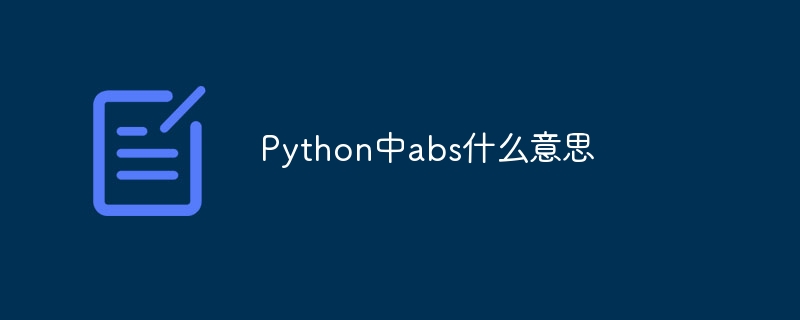
Abs in Python is a function that processes a number. It returns the absolute value of a number. Its syntax is "abs(x)". There is only one parameter "x" in the use of the syntax, which means is a numerical expression, and the final returned result is the absolute value of this value.

The operating system of this tutorial: Windows 10 system, Python version 3.11.2, DELL G3 computer.
Definition of abs function
In Python, the abs function processes a number. It will return the absolute value of a number. The specific usage syntax As follows:
abs( x )
In the use of syntax, there is only one parameter. This parameter represents a numerical expression. The final returned result is the absolute value of this value. The abs() function is explained below with an example. Usage, examples are as follows:
print "abs(-20) : ", abs(-20) print "abs(20.12) : ", abs(20.12) print "abs(10L) : ", abs(10L)
The final running result is:
abs(-20) : 20 abs(20.12) : 20.12 abs(10L) : 10
Extension content:
In fact, in Python, the abs() function is used to calculate a number In the standard library math, there is also a function fabs() that can obtain the absolute value of a number. The final returned result is a floating point number. For example:
import math 导入库 num = input(’请输入一个需要计算绝对值的数:’) print(math.fabs(num))
In the code, if If you input a positive number, then it returns a positive number, because in the absolute value calculation of any positive number, a positive number is returned.
The abs() function is Python’s numerical function, used to return the absolute value of a number.
The above is the detailed content of What does abs mean in Python?. For more information, please follow other related articles on the PHP Chinese website!